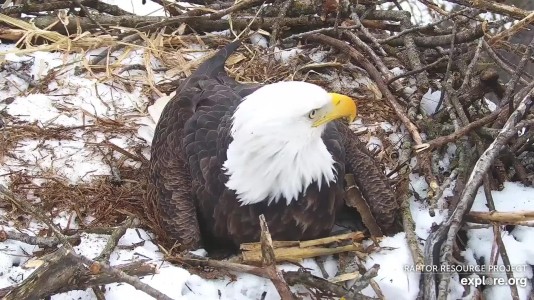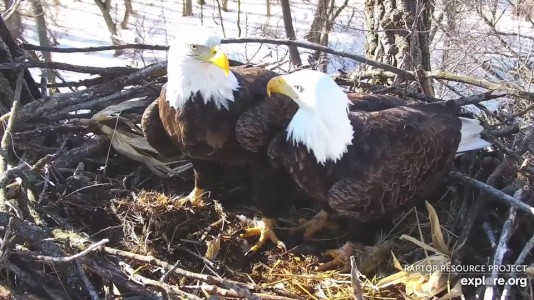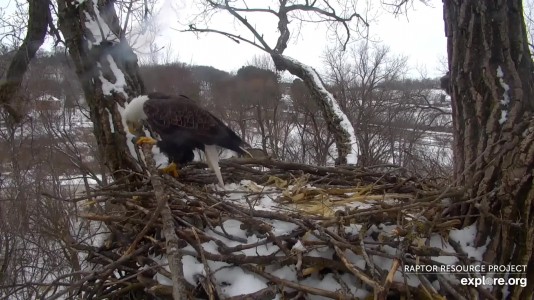Life As A Trapper: Part One
/ Post by Erica Wills of Polar Bears International
*Pictured: Parker Fitzpatrick and myself (top row) in 2008 during my time at PBI’s Leadership Camp; I also had the great pleasure of meeting Inuit couple Betty and Jim Settee (bottom row, L-R).
There have been a multitude of reports of late regarding the hunting of polar bears, but they aren’t the only animal in the Arctic (shocking, I know!). Near the end of my Leadership Camp experience with PBI, we met three trappers: Jim and Betty Settee, a native Inuit couple, and Parker Fitzpatrick.
I was especially moved by Betty’s quiet passion and love for her home. She passed away in 2010, and her words will remain with me forever: “In order to live on the land, you must respect the land. If you take good care of Mother Nature, she will take good care of you. When you walk through the forests back home, think of me. I am old now, and have only the strength to give my knowledge and love of this land to the next generation. It is up to you to take care of the Earth. It is up to you.”
Katie and I were pleasantly surprised to have the opportunity to catch up with Patrick during our trip with explore.org, and he graciously allowed us to interview him about his life in Churchill. Here is the first part of that interview, with part two to come soon!
Q: Who are you and what do you do here in Churchill?
A: My name is Parker Fitzpatrick and I work for Manitoba Hydro. I’m also a local trapper.
Q: How long have you lived here in Churchill?
A: 20 years.
Q: What made you want to move up here?
A: I was here working with Manitoba Hydro for the first time in the 90’s, and in the first trip I loved the people in Churchill, the laid back atmosphere and the wildness and that kind of thing. So I came back as soon as I could when I had the opportunity.
Q: You say the people and wildness drew you here; talk a little bit more about that.
A: Just that the town seemed 50 years behind the rest of the world. The rules didn’t always apply. Simple things, like you didn’t need a seat belt. Or one time I went to the bar on Sunday to have a beer, and the guy got off of work there and I thought I’d have to wait a while, but he said, “The beers are in the back; you can go and get the rest yourself, and pay for them before you leave.” Things like that. And the wildness! We were out working on a line and way up here there are lots of wildlife: tracks in the snow of moose and caribou, wolf tracks, wolverine. It’s just so isolated. It just seemed like a really cool place.
Q: Have you noticed any climate / environment / wildlife changes in the 20 years you’ve been here?
A: The winters are warmer. I don’t know if the springs are different, but the falls are earlier. For whatever reason I don’t know, but in the 20 years that I have been here I’ve noticed change.
Q: How would climate change affect your line of work?
A: As a trapper, you spend less time out on the land. We spend a lot of time out on the land after the freeze up, so we don’t get out until later and traveling is tougher. For my work at Manitoba Hydro, we get our work done in the winter, too, where we go and check damaged land. Everything is frozen and we take big machines out on the land. A lot of the land has been in permafrost but it’s thawing out now. This means the tower footings are sinking and twisting and anchors are letting go and that kind of thing. The warmer it is, the worse it’s going to be.



Trackbacks for this post